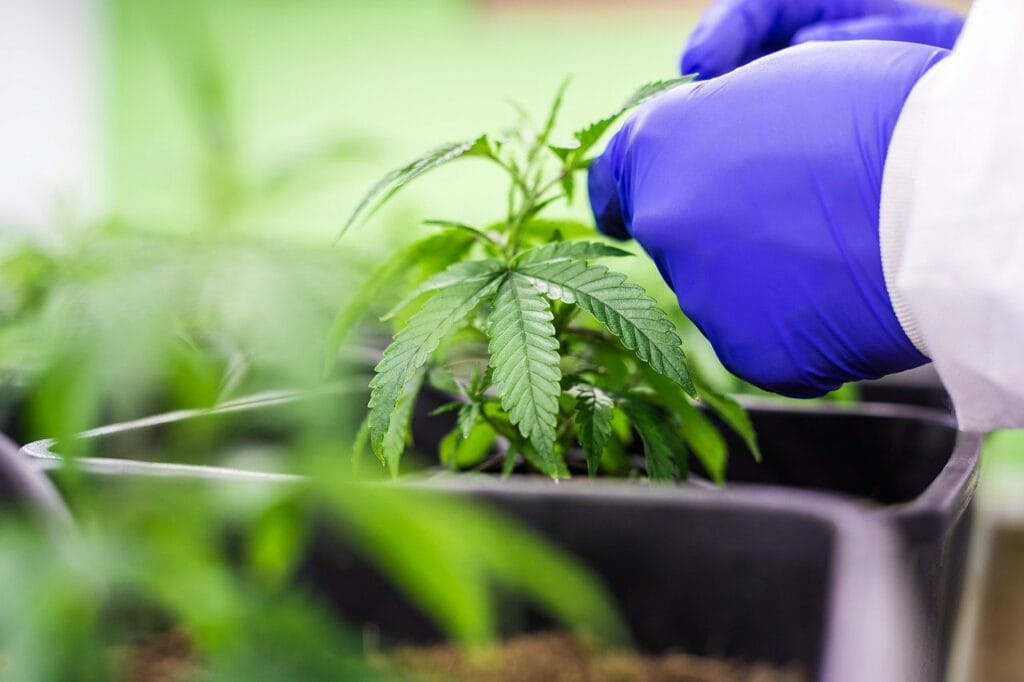Antibiotics serve as the main treatment for gonorrhea, a sexually transmitted infection that is increasing in prevalence among males compared to females. More than half (51.9%) of reported gonorrhea cases are found in individuals under 30 years old.
Interestingly, components of the cannabis plant may aid in treating gonorrhea. While many in Canada often Kush Station Canada to purchase cannabis for recreational purposes or to manage pain, insomnia, or depression, few recognize its potential role in treating gonorrhea.
Research indicates that THC, CBD, and other cannabis components can eliminate bacteria by disrupting their outer cell membranes, among other mechanisms.
Table of Contents
Key Takeaways:
- Research has demonstrated that five primary cannabinoids (THC, CBD, CBG, CBC, and CBN) effectively tackle bacterial infections.
- CBD is efficient in breaking down biofilms, the slimy structures bacteria utilize to resist antibiotic treatments.
- CBD also targets Gram-negative bacteria, which possess robust outer membranes.
Gonorrhea and Antibiotic Resistance
Gonorrhea is an established sexually transmitted infection caused by the bacterium Neisseria gonorrhoeae, which can be transmitted from mother to child during childbirth.
In infants, gonorrhea can lead to eye infections, while in adults, it affects the mucous membranes of the genitals, reproductive organs, anus, or throat. Symptoms typically arise within a week but can take up to 30 days to appear. Many, particularly females, may not exhibit symptoms, complicating early diagnosis.
Traditional Treatments
Standard medical treatment employs antibiotics to eradicate the bacteria. Initially, penicillin was sufficient, but resistance has rendered most antibiotics ineffective. Currently, the recommended treatment for gonorrhea involves a single injection of ceftriaxone, a cannabis at a dose of 500 mg.
Gonorrhea may soon develop resistance to all known antibiotics, prompting a global search for new and effective treatments.
Cannabis for Gonorrhea Treatment
Historically, Arabic and Ayurvedic medicine utilized cannabis for its diuretic, sedative, and anti-inflammatory properties in treating cystitis and gonorrhea. Prior to penicillin, doctors often prescribed cannabidiolic acids (CBDA) for bacterial infections.
An 1892 guideline noted that cannabis reduced discharge, inflammation, pain, and restlessness in patients with gonorrhea. Various forms of cannabis, including tinctures, extracts, and tannates, were employed for treatment.
Cannabinoid and Antibacterial Properties
According to a study highlighted in the cannabis Health Index by Uwe Blesching, PhD, THC, CBD, CBG, CBC, and CBN exhibit significant antibacterial properties, especially against multidrug-resistant strains.
- CBD and CBDA exhibited strong antibacterial effects against the Gram-positive bacteria S. aureus and B. subtilis but were ineffective against the Gram-negative E. coli.
- CBG and CBGA demonstrated antibacterial activity against Gram-positive bacteria.
- Δ9-THC and CBD compounds displayed considerable antibacterial activity against all Gram-positive bacteria but lacked effectiveness against Gram-negative bacteria.
These cannabinoids perform comparably, if not better, than standard antibiotics against these strains. They circumvent common bacterial resistance mechanisms. While cannabinoids show potential as systemic antibacterial agents, their topical application for reducing MRSA skin colonization is particularly promising.
Researchers at the University of Queensland have found that CBD can eliminate several highly resistant bacteria, including those causing gonorrhea, MRSA, and meningitis. CBD was effective against both Gram-negative and Gram-positive bacteria, including antibiotic-resistant strains.
The findings include:
- CBD was notably effective in dismantling MRSA’s biofilms, the slimy structures aiding the bacteria in resisting antibiotic treatments.
- A specific CBD solution successfully eradicated Neisseria gonorrhoeae bacteria, the causative agent of gonorrhea. This finding is significant as it marks the first instance where CBD has demonstrated the ability to kill Gram-negative bacteria, known for their resilient outer membranes.
Best cannabis Products From an Online Dispensary Canada
Explore these top cannabis products online at a marijuana dispensary tailored to alleviate gonorrhea symptoms.
Conclusion
Utilizing cannabinoids such as THC and CBD to combat gonorrhea signifies a major advancement in the fight against antibiotic-resistant infections. The inclusion of other cannabinoids ensures that patients with gonorrhea can benefit from a holistic treatment approach. Kush Station Canada allows you to access premium cannabis products containing all essential cannabinoids at competitive prices.
Where to Buy High-Quality cannabis Products?
Kush Station Canada, the leading online cannabis dispensary in Canada, meets your needs whether you seek pain relief or medical benefits. We provide the largest selection of top-quality marijuana products. Enjoy the best online prices with reliable mail-order cannabis services via Canada Post, free gifts, and easy payment options.
Your satisfaction is paramount, so we ensure all products are safe, your personal information, including name, shipping address, and contact number, is secure, and shipping insurance guarantees the safety of your package. Order marijuana today and experience the best cannabis offerings.
Frequently Asked Questions
What are the advantages of using a cannabis product containing all cannabinoids for treating gonorrhea?
Utilizing products like flower or marijuana edibles with THC, CBD, and other cannabinoids collectively creates an “entourage effect.” They synergize more effectively than when used separately. A full-spectrum approach yields better outcomes in treating your infection.
Can cannabis manage the pain caused by gonorrhea?
Yes. The cannabinoids found in cannabis exhibit potent analgesic properties. THC partially activates CB1 and CB2 receptors to diminish the release of glutamate and serotonin while modifying dopamine levels, impacting pain pathways. CBD does not directly activate CB1 receptors but alters their activity negatively and interacts with serotonin and various pain receptors.
Is there a specific dosage of cannabis that can help manage bacterial infection?
Research on cannabis’s effects on bacterial infections is limited, leading many studies to omit specific dosage details. They focus on how certain cannabinoids interact with different bacteria.
Beginners may opt for lower doses, gradually increasing as they become more accustomed. The cannabis industry offers a diverse range of products with varying potency levels, allowing users to adjust their intake based on personal preferences.
Can I replace my antibiotics with cannabis when treating gonorrhea?
No. Antibiotics are the primary treatment for conditions like gonorrhea and other bacterial infections. You may utilize cannabis alongside antibiotics as a supplementary treatment to alleviate symptoms and potentially aid in combating bacteria. Consult your doctor regarding its integration into your current treatment plan.
Related Articles:




